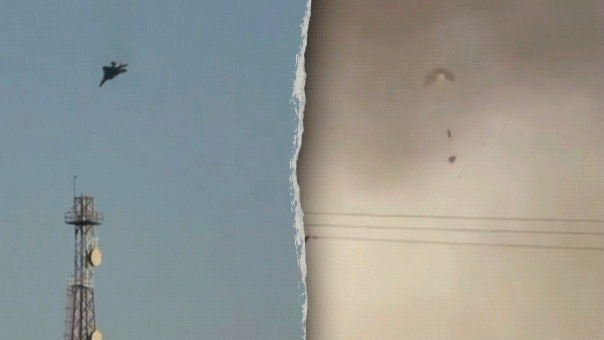Fox News Flash top headlines for July 14
Fox News Flash top headlines are here. Check out what's clicking on Foxnews.com.
The House has passed a bill to establish an Active Shooter Alert Communications Network, which would allow federal officials to work alongside state and tribal authorities to set up infrastructure to notify people if there is an active shooter in their area.
The bill failed last month when House members voted on a motion to suspend the rules and pass the bill, which required two-thirds for approval. On Wednesday, the House passed the bill in a more traditional manner, with a simple majority of 260 to 168. This was one more vote in favor than the bill received in June.
The bill had a degree of bipartisan support, with 43 Republicans voting in favor despite most opposing it. One House Democrat, Rep. Ron Kind, D-Wis., voted against it, as he did during the previous vote. Supporters of the bill said it will provide important assistance to let people know of dangerous situations in their neighborhoods, while opponents called it unnecessary and likely to stoke fear among the American populace.
"This bill is a common sense piece of public safety legislation that police have asked for over, and over, and over again, and we are past due in delivering it to them," Rep. David Cicilline, D-R.I., one of the House members who introduced the bill, said on the House floor.
The bill would create a position within the Department of Justice known as the national coordinator of the Active Shooter Alert Communications Network. Acting in concert with the FEMA administrator, Transportation secretary, and FCC chair, the coordinator would make sure state and local governments have systems in place to respond to active shooter situations, and encourage them to develop alert systems so that local populations can be notified if there is a shooter nearby.
"We already have this type of alert infrastructure available at the federal level, let’s maximize its potential to save lives and give officers the tools they need to keep their communities safe," Cicilline said. The Democrat noted that the bill does not require police departments to use the system, but it gives them the option if they believe it would be useful.
Rep. Fred Upton, R-Mich., who introduced the bill alongside Cicilline, pointed to the July 4 shooting in Highland Park, Ill., claiming that the services the bill provides could have saved people.
"Wouldn’t it have been nice to have had a system that would have alerted the entire parade route to take cover, and maybe some of those folks that were killed or wounded wouldn’t have happened?" he asked.
NEW YORK CITY MAYOR ERIC ADAMS TO APPOINT ‘GUN VIOLENCE CZAR’ AS SHOOTINGS, KILLINGS PERSIST: REPORT
Rep. Matt Gaetz, R-Fla., speaking on the House floor, cautioned that the bill could have unintended consequences. He gave a hypothetical situation of a stadium full of concertgoers all getting an alert if someone fired a gun several blocks away, perhaps even by accident.
"Would that make the circumstance safer? Of course not. It would lead to stampede, tragedy, hysteria, mistake, perhaps even more death," he said.
Gaetz noted that the bill does not specify the distance from an incident where people would still get alerts, and does not make clear what types of events would warrant an alert.
CLICK HERE TO GET THE FOX NEWS APP
"This bill is like yelling "fire" in a movie theater, except the fire is in another movie theater across the street," he said.
Rep. Jim Jordan, R-Ohio, similarly said that the bill amounts to "Democrat fear-mongering that guns are an ever-present threat."


















































